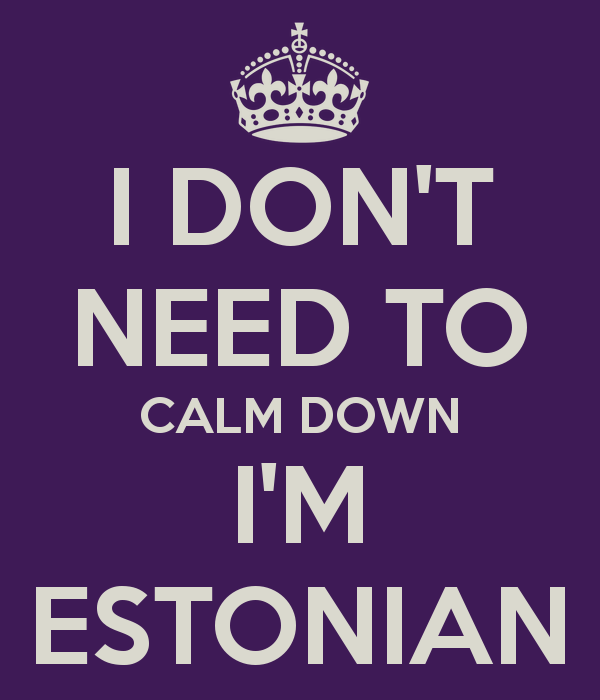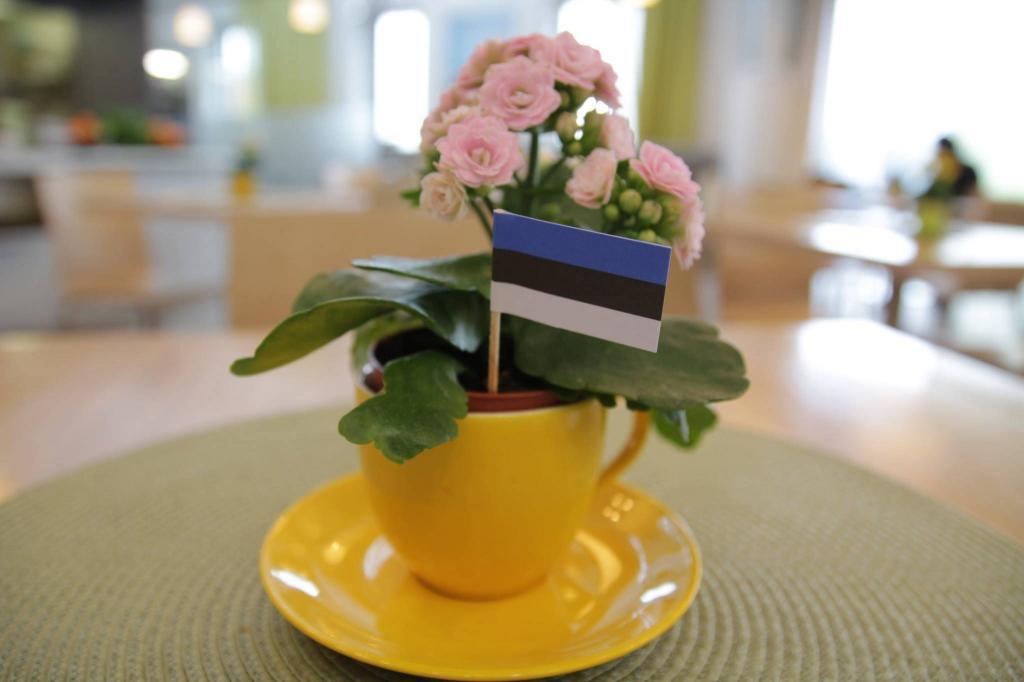Every country has cultural differences. These are the five that David Bailey, a British expat in Tallinn, immediately noticed.
I moved to Estonia in the summer of 2014. Married to an Estonian with three young children, I wanted to try my chances at living in another country. So I packed up my belongings, convinced my wife that Estonia can be just as good as the UK, and headed off.
Of course, I knew there would be cultural differences when I moved to Estonia. Every country has them, and living in Tallinn and discussing with others from around the world, these are the five cultural differences I immediately noticed.
Directness and a no-nonsense attitude
When communicating with Estonians, I was always happy and smiley and attempted to express my emotion. Yes, I admit, sometimes nonsensical, but I was trying to make conversation.
For Estonians, less is always more. Best to be concise and to the point. For us Brits, this seems very direct and is considered rude. Yet it is not – an Estonian doesn’t have time to waste words, so why bother with emotions and small talk (for example, we Brits love to talk about the weather).
Talking a lot and taking centre stage is considered rude and disrespectful in Estonia. I’m now more practical and get straight to the point!

Silence is appreciated
An Estonian will not cut anyone off in a conversation, talk louder or fight for attention. A polite Estonian waits for silence, a question or simply their turn to talk. If they have something to say, that is. Estonians will only speak if they have something to offer an individual that could be useful to them (again, relating to their no nonsense attitude).
So I know now that if you have nothing of substance to offer, it is better to stay quiet. Even senior citizens know that “talking is silver, silence is golden” (“rääkimine hõbe, vaikimine kuld”).

Sincerity
Estonians are serious people – hardworking, responsible, rule-obedient, simple and transparent. If an Estonian makes a promise, they will keep it.
In the UK, if I asked for a favour, the response will be “sure, let’s do that” and yet unless I push that person to fulfil that favour, they will not mention it again. I applied the same logic when arriving in Tallinn and was pleasantly surprised that every time I asked for a favour – the Estonian concerned always delivered and helped me.
Estonians also expect sincerity. As a Brit, I always greet people with the proverbial “how are you?” and expect a response similar to “good, thank you”. I am not genuinely asking about how the person is, merely a more polite, indirect (and yes, I admit it, ungenuine) way of saying hello.
When I used this greeting to my Estonian colleagues, I was surprised to receive a plethora of information about their lives, the Estonian assuming I was genuinely asking about them. Needless to say, now my greeting is a simple, sincere and no-nonsense “tere” (“hello”).

Personal space
Estonians need their personal space. Quite a lot of it. They do not easily speak about personal or emotional stuff. It is much more convenient to have conversations about the news, weather, politics or world events. Estonians love their forests and time in the countryside, and why not when there is so much of it.
Now I always greet new people with a handshake, (never hug or kiss continental style). Maybe once alcohol is applied to Estonians and the persons concerned are friends and family, then maybe I’ll pluck up the courage to offer a “bromance” hug or slap on the back. Funnily enough, alcohol seems to turn Estonians into very affectionate and sentimental people!

Global curiosity
I quickly learned from my wife and many other Estonians here that Estonia is part of northern Europe and the Nordic nations.
Culturally aligned, language similar to Finnish and speaking several other languages fluently, Estonians are curious about the world and how the world views them. They are not a post-Soviet state struggling for identity in the modern world, but a progressive, open and technologically advanced society (which, of course, Estonia is!).
Estonians study and work hard, travel often and seek to learn more from the world to improve themselves. It’s this attitude that has most benefited me, from being a reactive consumer within society to a more diligent, proactive and resourceful person. It’s this attitude that I have imbued that I must thank Estonia and my Estonian friends for.


*British immigrant!
I love the “I don´t need to calm down, I am estonian!” banner. Haha. Thing with small talk here is you have probably inhaled and accidentally swallowed it a lot. It really is so small you don´t even know it can be classified as “talk”. it is the sound our corner of the mouth makes when we nearly smile.
I have to say that the characteristics you have listed as being cultural differences between Estonians and Britons, are all characteristics that I see in myself, and that I see every day in my fellow Britons. Not all of them, of course, but certainly not a small minority. The truth is, I think, that it is so difficult to generalise about any nationality, because immediately you find exceptions. Britain, probably more than any other European country, and more than most in the World, is comprised of so many people of different family origins, traditions and cultures. Here you can find people to match the descriptions of any other nationality you care to mention, and probably in any street or neighbourhood anywhere in the country.
Congratulations on making things work for you in Estonia. Paradoxically I have found that Estonians make a big thing of the silence and “small talk” difference, they are always talking about it to me! The real difference I think is that they don’t waste words, conversations tend to be more meaningful with nordic people than with English people who seem to want to fill up every gap. If you haven’t already, spend some time in the countryside away from Tallinn, maybe in a small village, where you will find the affinity and feel for nature runs more deeply.
These qualities match also 100% with those of Estonia’s northern neighbour, Finland!
Thought exactly the same!
“They are not a post-Soviet state struggling for identity…” Really?
Compared to say, Azerbaijan or the other Stan’s really. Estonia has no identity crisis.
A very interesting and enjoyable read, given that I am a Canadian born Estonian that has worked and lived in Estonia for several years. As a Canadian I have been told that I talk to much, offer too much information, but at the same time say what is on my mind. I don’t keep quiet and hold back like the local Estonians.